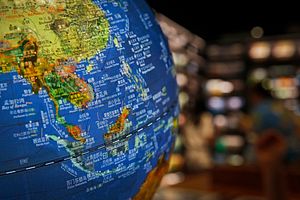Last Thursday, during a question-and-answer session in the lower house of the Malaysian Parliament, Foreign Minister Saifuddin Abdullah alluded to a possible departure from the country’s non-militarization policy in the South China Sea when he called for the government to upgrade its fledgling naval fleet.
Saifuddin, who has been foreign minister since the Pakatan Harapan (PH) government came to power in 2018, said “We would not want (conflict) to happen, but our assets … need be upgraded so we are able to better manage our waters should there be a conflict between major powers in the South China Sea.”
Further, Saifuddin stressed that China’s coast guard now occupies a permanent presence near the South Luconia Shoal, which lies within Malaysia’s Exclusive Economic Zone (EEZ) off the coast of Sarawak. He also revealed that China’s coast guard vessels were larger than the biggest naval vessel of the Royal Malaysian Navy – suggesting that if Malaysia sought to push back against any perceived encroachment by China, the Royal Malaysian Navy could do little to assert itself.
However, conscious of overstepping the mark and damaging bilateral relations with Malaysia’s largest trading partner, Saifuddin attempted to soften his assessment of the issue by underscoring the role played by both Beijing and Washington in escalating tensions in the region, but his calls for upholding international law and ensuring freedom of navigation in the contested region put his position clearly in line with the United States rather than China.
What is interesting about these remarks is that they directly contradict the 2019 Foreign Policy Framework of the New Malaysia, which states that “the Prime Minister of Malaysia has proposed for the non-militarisation of the South China Sea and for the regional waters to be turned to a region of peace, friendship and trade.”
They also contradict a comment made by Malaysian Prime Minister Mahathir Mohamad in May, on the sidelines of the United Nations General Assembly, that Malaysia was too small to confront China on issues such as the South China Sea.
As such, one could surmise that Saifuddin’s remarks may represent a push within the government to shift its current policy on resolving territorial claims in the South China Sea.
This issue and the perceived encroachment by China are of concern to Putrajaya because within the Spratly Archipelago, Malaysia maintains 12 territorial claims, which are rejected by China as they lie within its “nine dash line” that covers majority of the South China Sea.
Although both countries had hoped to make progress on this issue when Saifuddin and his Chinese counterpart, Wang Yi, agreed in September to set up a joint dialogue mechanism to discuss territorial issues in the South China Sea, his recent remarks suggest that despite the establishment of the mechanism, neither Malaysia or nor China will likely concede their positions.
At this stage it is unclear whether these contradictions represent a growing divergence between the Malaysian Prime Minister’s Office and Ministry of Foreign Affairs or whether Saifuddin was simply attempting to ignite a reassessment of Malaysia’s current policy on the issue.
The broader region will be hoping that the Defence White Paper, which is expected to be tabled in parliament on December 2, 2019, will help to clarify Saifuddin’s remarks and whether or not they form part of a broader policy shift towards asserting Malaysia’s territorial claims in the South China Sea.
Marcus Tantau is a political analyst currently based in Kuala Lumpur, Malaysia

































